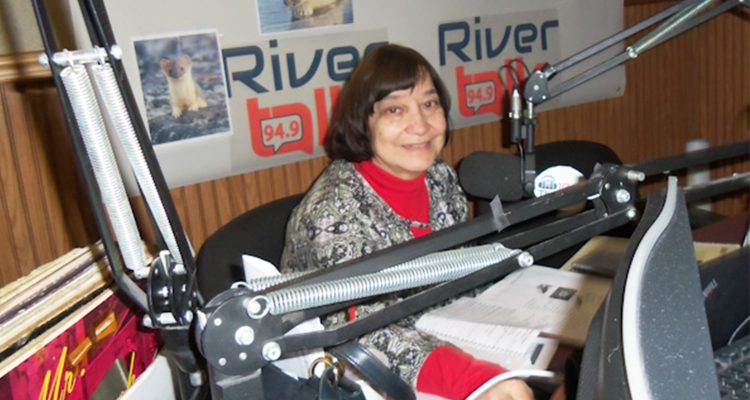Editor’s note: Today, March 25, 2020, is Greek Independence Day, a national holiday celebrated annually in Greece, commemorating the start of the War of Greek Independence in 1821. Meet Pam Markricosta who keeps her heritage alive through music and more.
Pam Makricosta of Weirton fondly recalled that when she was growing up, the unique strains of Greek music were ever-present in her home. “My family always said we danced before we walked,” she laughed.
PRESERVING THE CULTURE
Makricosta has kept the Greek music playing — and the islands’ culture alive — for the Upper Ohio Valley to appreciate. She is in her 47th year as host of “The Athenian Hour,” a radio program heard every Sunday, from 9 to 10 a.m. The broadcast originates from WEIR 1430 AM and 106.3 FM The River, and streams worldwide.
“The Athenian Hour” is a lively combination of Greek music, relevant news, and up-to-date listings of cultural and religious events in the tri-state area. Makricosta imparts information in English, then repeats it in Greek.
“I feel I’m an important part of preserving the Greek culture and language in our region,” she said. “The Athenian Hour” is the only Greek radio broadcast in West Virginia.
Nick Tranto, parish council president for All Saints Greek Orthodox Church in Weirton and chairman of the city’s annual Greek Festival, agreed.
“Many of our region’s residents are first-generation Greek Americans, and many of us are still bilingual and closely tied to our parents’ and grandparents’ ethnic roots,” he explained. “Pam’s program keeps us connected with our heritage and culture, through her music and Greek language. We are very grateful to have her devotion and tenacity in preserving the legacy of our immigrant roots.”
Nearly all the music heard during “The Athenian Hour” is from Makricosta’s personal collection. For example, listeners can be transported to the islands via the popular Greek band Trio Bel Canto; piano and guitar melodies from the late Greek composer Manos Hadjidakis; the modern stylings of Christos Dantis; and the classic, distinctive syrtaki dance music. Also heard are “mystical strings of the ‘bouzoukee,’ which are expressed as historic rebetika, and laika songs, along with the traditional songs of the Greek islands called ‘nisiotika’,” noted Tranto.
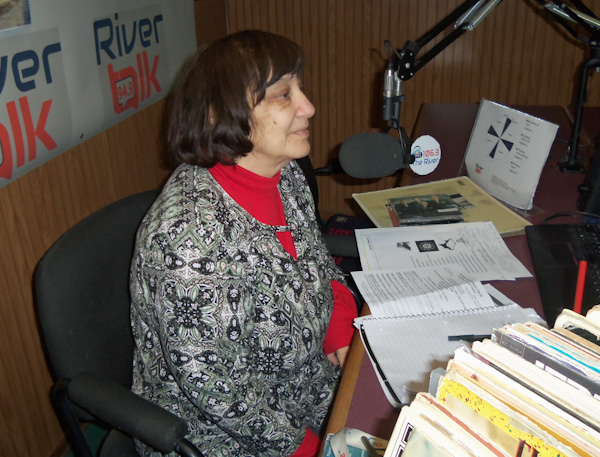
Makricosta knows her audience well. She plays selections based on listener favorites, and often sends out birthday and anniversary greetings.
Makricosta selects at least one religious hymn each week — Greek, Russian, Serbian or Slavonic — and Greek Byzantine chants during Easter and Christmas holidays, because she knows there are many older listeners who might not be able to attend church services. She also announces the scripture readings designated for each Sunday.
Makricosta took over the radio program in 1973, but she actually made her first appearance when she was just a child.
At that time, the show was called “Grecian Melodies” with Crystal Kakalakis Sanderson. Originally from Crete, Sanderson started the program and hosted for about 25 years, beginning at WSTV Radio in Steubenville, before WEIR went on the air, Makricosta said.

“Our families were acquainted, and we listened to ‘Grecian Melodies’ every Sunday,” she remembered. “Crystal often invited local children to come on the radio to recite or sing. I was on when I was 7, reciting a poem about Greek Independence Day.”
When Sanderson’s health began to fail, a friend of Makricosta’s at WEIR asked her to fill in “temporarily.” Makricosta agreed, and even tried to find a permanent replacement for Sanderson. She went so far as to ask a relative to host the show, offering to select the music and write the commentary every week. But that never happened, and Makricosta remained at the helm.
It’s a testament to her dedication that, prior to having recent surgery, Makricosta pre-recorded several weeks of programs so that the Greek broadcasts would not be interrupted. (She works with producer Walker Pavelka, a recent West Liberty University grad.)
Makricosta said the steadfast support of local business sponsors has enabled her to keep the program on the air for nearly five decades.
As host of the show, Makricosta has been able to meet Greek dignitaries, ambassadors and entertainers, traveling to Pittsburgh, Cleveland and even New York, to interview them. She tries to keep up with the current news from the Greek islands, especially through the American Hellenic Institute.
FAMILY LIFE
Born in Steubenville and raised in Weirton, Makricosta is a graduate of Weir High School and West Liberty State College (now University), and attended West Virginia University. She’s proud of the fact that while at West Liberty, she received 12 credit hours for her thorough knowledge of the Greek language. She encouraged students at other local colleges and universities who possess a thorough knowledge of a language other than English to inquire about the possibility of getting credit as she did.
Makricosta’s father Nick was born on the Greek island of Chios, and her mom Helen was born in Weirton. She has one brother, Tony. “My grandparents were refugees who survived the slaughter of Christians by the Turks,” Makricosta said. Greek was her first language. As a matter of fact, her great uncle, who lived with them for a while, didn’t allow English to be spoken in the home. Makricosta began to learn English as a kindergartener at Trinity Lutheran Church in Weirton.
“I don’t remember it being difficult to learn English,” she said. However, she acknowledged struggling with what syllable should be emphasized in some English words. The emphasis is more obvious in the Greek language, she feels, because accents are often part of individual words.
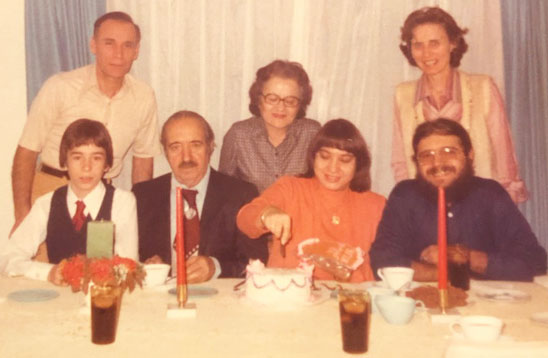
Honoring their culture was so important to Makricosta and other Greek families in Weirton that children attended a church-sponsored “Greek school,” a few days a week after regular classes at the public elementary school. They studied reading, grammar, writing and history, with teachers who were usually Greek natives. “There was no question about it, we had to go!” Makricosta noted there were some non-Greek children taking these classes, too, because their parents knew that knowledge of Greek could be valuable in future careers, such as medicine.
Both of her parents were great cooks, according to Makricosta — her father was a chef on a Merchant Marines ship and later in restaurants in Baltimore and New York City. He taught his children to make native dishes, including Greek lasagna known as “pastitsio” with lamb. Her mother instructed them in the art of making of delicious Greek confections, such as baklava.
Makricosta has been to Greece several times. “My father made sure we went as children,” she said. “My brother and I were fortunate enough to see both my maternal and paternal grandparents’ homes. Like anyone who connects with their ethnic roots, it felt special to be there.”
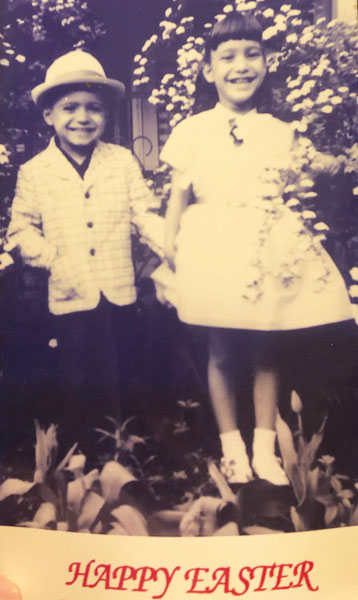
Makricosta still has lots of relatives in Greece with whom she keeps in touch, largely because her father left his six sisters behind when he came to America.
Working in Greece for a summer, Makricosta taught Greek language and culture to American children at a church camp. On other sojourns, she conducted tours of the islands and historic sites. Though it’s been several years since her last visit, she said, “I’m ready to go back! I’m always happy to be around family.” She never considers herself a tourist there.
CHAMPION OF HER HERITAGE
Makricosta is coordinator of literacy and lifelong learning at the Mary H. Weir Library in Weirton. She recruits and trains volunteers to help adults with reading and writing skills and teaches English as a Second Language (ESL) to foreigners studying for citizenship.
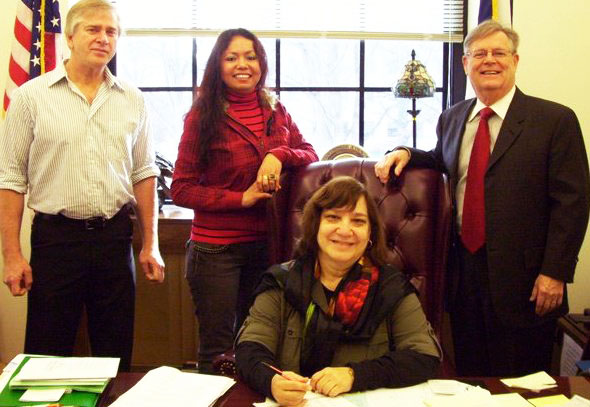
“I tell my ESL students you’ll know your English is getting better when you start dreaming in English!” she said. Through the library program, Makricosta has met and worked with individuals from around the world. So, even away from “The Athenian Hour,” she champions the value of ethnic heritage.
Makricosta said she’s heard from young listeners of Greek background who appreciate the broadcast. “Pam should be recognized and acknowledged as a key ‘teacher’ and advocate of the importance of passing heritage to the next generation,” Tranto stated. “She does this week after week without seeking any fanfare or commendation.”
In addition to being broadcast every Sunday on the radio, “The Athenian Hour” is streamed and can be heard at 9 a.m. Sundays by clicking on the arrow in the listen box.
• Maria E. Sticco is a native and current resident of Weirton, and a graduate of Rutgers University. She recently retired from the University of Pittsburgh Press, where she spent over 17 years as a literary publicist. Her career also included nearly a decade as communications manager for Walnut Street Theatre in Philadelphia. She spent many years as a reporter and editor with the Wheeling News-Register and The Times Leader, covering everything from lost puppies to politics and murder cases.


